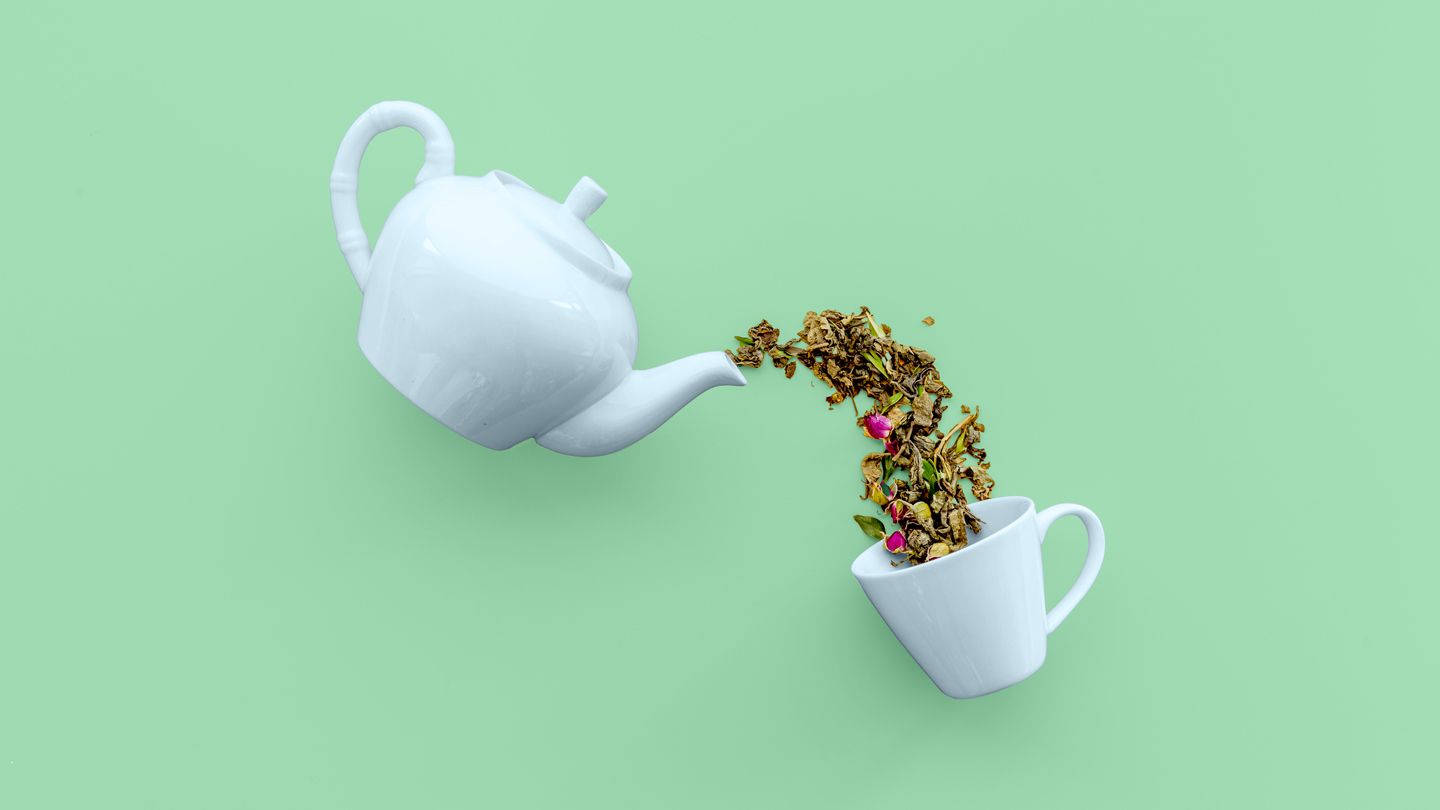Hypothyroidism is the medical term for an underactive thyroid. Your thyroid gland controls your metabolism and helps regulate your mood, heart rate, and even digestion, says the Cleveland Clinic. And when you have hypothyroidism, the gland doesn’t make enough of the thyroid hormone, causing uncomfortable symptoms. According to the Mayo Clinic, some common symptoms include:
- Fatigue
- Dry skin
- Weight gain
- Muscle aches and weakness
- Pain and stiffness in joints
- Constipation
- Depression
People with hypothyroidism may also experience cognitive issues, including brain fog and forgetfulness, says the American Thyroid Association.
While levothyroxine, a prescription thyroid medication, is needed to treat hypothyroidism, certain herbal teas may help soothe some of the symptoms associated with it. Before trying any herbal teas for hypothyroidism, be sure to talk with your healthcare provider to make sure they won’t interact with any other medications you’re currently taking.
1. Chamomile Tea
According to research published in 2022, chamomile has been used for many years to treat stomach cramps and constipation, which is common in people with hypothyroidism.
In addition, chamomile contains calming and relaxing properties that may help relax and soothe sore joints, swelling, and muscle aches, symptoms you may experience with untreated hypothyroidism, says the Mayo Clinic.
If you do experience these symptoms and are currently taking prescription thyroid medication, it’s important to talk with your doctor. They may need to adjust your medication. People with hypothyroidism also have an increased risk of rheumatoid arthritis, which may be contributing to these symptoms.
Chamomile tea brewed with 5 grams of dried chamomile flowers, two slices of lemon, and a tablespoon of honey may help relieve inflammation, suggests the research from 2022. You can buy chamomile flowers from online tea retailers.
2. St. John’s Wort Tea
St. John’s wort, or Hypericum perforatum, is a perennial herb that is native to Europe. According to the National Center for Complementary and Integrative Health, St. John’s wort is commonly used for treating mild to moderate symptoms of depression. It may also help ease muscle pain, says the Mayo Clinic.
Some proponents of the tea suggest steeping 1 teaspoon of dried St. John’s wort herb, which you can find from online retailers, in a cup of hot water for 15 to 30 minutes. You can drink around two cups a day for six weeks. If your symptoms persist, be sure to talk with your doctor.
3. Sage Tea
Sage is part of the mint family and is native to the Mediterranean region. While there are many different varieties of this herb, Salvia officinalis is what’s commonly used for tea.
The herb has been used for thousands of years as a folk medicine to treat pain and inflammation, while the tea itself has been used for easing symptoms of depression and digestive disorders, among other conditions.
Research published in 2015 suggests that the tea may have protective effects against thyroid conditions too. In fact, people who drank sage tea two to six times per week had a significantly reduced risk of developing thyroid disease.
To make sage tea, some proponents suggest placing six fresh sage leaves in a cup, pouring boiling water over the leaves, and then allowing the tea to steep for five minutes before drinking.
4. Greek Mountain Tea
Greek mountain tea, also known as Sideritis, one of the most popular types of herbal infusions used in Greece. A study published in 2023 suggests that it may improve memory and enhance mood. People with hypothyroidism commonly experience memory issues and symptoms of depression, says the Mayo Clinic. More specifically, research published in 2015 suggests that the tea may prevent any type of thyroid disease from developing, which includes hypothyroidism.
Some proponents of the tea suggest collecting one or two stems of the dried herb, breaking them into thirds, and then dropping them in a pot with a cup of water. Once the pot boils, remove it from the heat and let the tea steep for seven minutes before drinking.
You can also find Greek mountain tea blends from various online retailers and tea stores. To prepare the tea, follow the instructions listed on the packaging.
Talk With a Doctor
Before using herbs for any health conditions, be sure to speak with your doctor, especially if you’re currently taking medications. Some herbs and medications may interact in harmful ways, according to the National Institutes of Health. For example, St. John’s wort may interfere with the efficacy of antidepressants, blood thinners, and heart medications, among others.
Your doctor can help determine whether the herbs are a safe and complementary therapy to ease symptoms associated with hypothyroidism. They can also help advise you on a proper dosage.
Women who are pregnant or breastfeeding should not use these herbs. In addition, do not give these herbs to children without speaking to a pediatrician first.
The Takeaway
- Hypothyroidism can cause fatigue, muscle aches, and joint pains. It may also contribute to symptoms of depression. Herbal teas may help ease some of these symptoms.
- Both chamomile and St. John’s Wort teas may help soothe sore muscles and joints.
- Research suggests that St. John’s Wort, sage, and Greek Mountain teas may be useful for easing depression symptoms and improving mood.
- It’s important to speak with your doctor before trying herbs, including herbal teas, for hypothyroidism or any health condition. Your doctor can tell you if these herbs are safe and recommend an appropriate dosage.
Read the full article here




